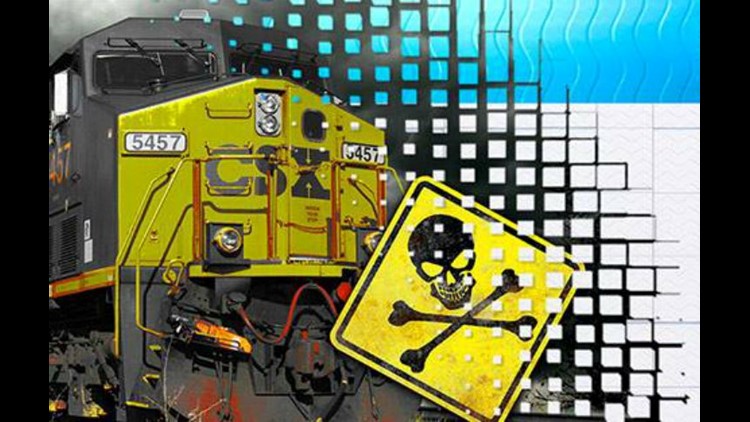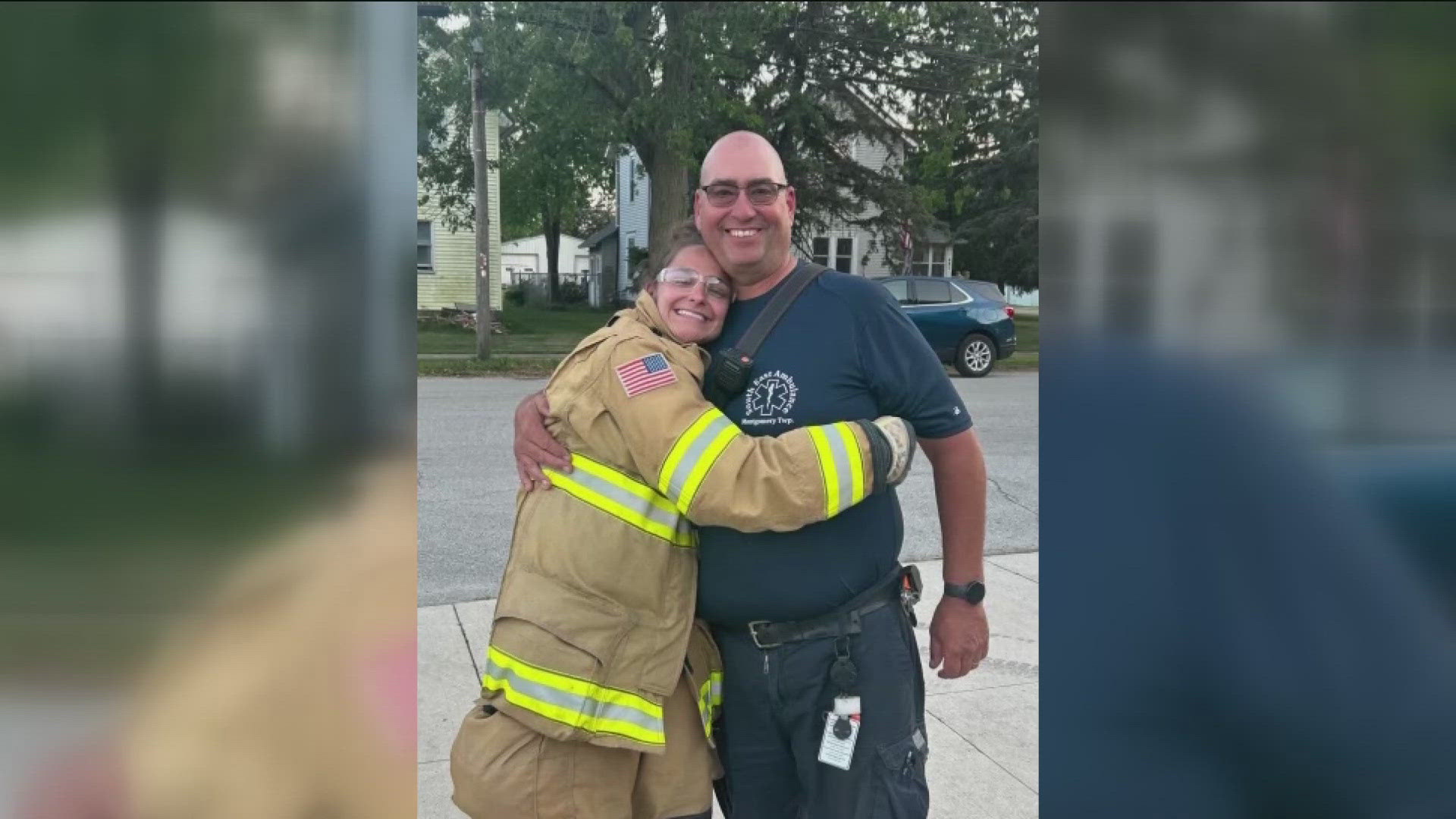TOLEDO, OH (Toledo News Now) - For Katherine Curley, it's a way of life. She lives only a couple of blocks away from fast moving trains on a Norfolk Southern track. So was she aware of what's being transported through her neighborhood?
"I think we just get used to hearing it go by and trusting that everything is okay, all the time," said the Port Clinton resident.
A disaster on July 6, 2013, could change her mind. The downtown section of Lac Megantic, Quebec, Canada was levelled when a train carrying flammable crude oil derailed and exploded. 47 people were killed.
In April of 2014, 17 tankers on CSX tracks derail in Lynchburg, Virginia. There was another disaster this past February, when 27 CSX cars carrying the oil derailed in West Virginia.
The Quebec disaster prompted the U.S. Department of Transportation to issue an order last May, aimed at rail companies that haul 1 million or more gallons of crude oil in a single train from the Bakken region of North Dakota. The order forces rail companies to share the routes and the estimated number of trains carrying the oil each week with state emergency management leaders.
We wanted to know how much was coming through our area, so we got our hands on it through a Freedom of Information Act request and discovered Norfolk Southern moves 13 to 24 trains per week with Bakken crude oil down its "CD" line. It goes through Williams County and its cities of Edgerton, Bryan, and Stryker.
It then moves through Fulton County and Archbold, Wauseon, Delta, and Swanton, and then into Lucas County. The trains carry the oil through Holland, Springfield Township, South Toledo, and across the Maumee River into East Toledo.
In Wood County, the oil moves past neighborhoods in Walbridge and Northwood. It continues into Ottawa County and through Oak Harbor, and Port Clinton, before moving into Erie County and the city of Sandusky.
Toledo Fire Deputy Chief Thomas Jaksetic is watching these trains as they come through Toledo. He attended a lengthy training session last October in Pueblo, Colorado, organized by several railroad companies.
"This particular product has an extremely high BTU content, so when they do derail and if it does catch on fire, the heat is very, very intense," Jaksetic said.
A BTU, or British thermal unit, is a measure of energy.
Norfolk Southern also transports the oil on its "B" line through Paulding, Putnam, Hancock, Seneca, Sandusky, and Erie Counties. Also, the oil moves along their "T" line through Ottawa County and the city of Oak Harbor and into Sandusky County, through Fremont, Clyde, and Bellevue.
We discovered that CSX hauls 15 to 30 trains a week with the crude oil through Defiance and Henry Counties alone and sends other shipments through Hancock, Wood, and Seneca Counties.
Canadian Pacific reported to the state that it moves 2 to 4 trains per week with 1 million or more gallons of the crude oil through Williams and Fulton Counties. When you add them up, that means at least 30 to 62 million gallons of Bakken crude oil is travelling through our area every week. In Quebec, it took only about 2 million gallons of exploding oil to level the town.
Wood County Emergency Management Agency Director Brad Gilbert is also well aware of the Bakken oil that's coming through the area.
"We deal with a lot of hazardous materials moving through Northwest Ohio at any given point on any given day. So it is more the volume that kind of puts it at the front spotlight right now," said Gilbert.
The crude oil moves through downtown Port Clinton and right behind the fire station. Chief Kent Johnson has done research on the oil and has trained his firefighters for potential derailments.
"We feel we are well prepared in the event of any emergency. And with the resources we have, between our fire department and my mutual aid companies," the chief said.
"It has raised the awareness for people along the route. They should know. Hopefully it helps get them better prepared, this order," added Ottawa County EMA director Fred Petersen.
The Norfolk Southern Corporation says it's committed to safety.
"We drive the same roads, our children attend the same schools. We have plenty of incentive to make sure we are operating in a safe manner," said Norfolk Southern manager for public relations Dave Pidgeon.
But Norfolk Southern and Canadian Pacific think we shouldn't have access to the routes and numbers of trains because of security concerns. Washington, D.C. train expert Fred Millar says rail companies are trying to keep the public in the dark.
"They are forcing many states to sign confidentiality agreements. As if there was some kind of homeland security question here. That is a completely hogwash excuse," Millar said.
The danger is clear enough, that on May 1, U.S. and Canadian transportation leaders announced a plan to phase out old train tanker cars that carry oil and other flammable liquids. They will also require enhanced braking systems on trains.
BONUS: Read the Enhanced Tank Car Standards and Operational Controls for High-Hazard Flammable Trains
You can't control what comes down these tracks, by your home or along your street. But if you live within a half mile of trains carrying Bakken crude oil, there are safety precautions that you and your family can and should take.
"Be prepared to get your 3-day pack, get your medicines together and if the time comes that I need to evacuate you, be prepared for that," said Port Clinton Fire Chief Kent Johnson.
Now that she knows about the Bakken oil and its potential dangers, Katherine Curley will be more prepared in Port Clinton.
"Yes, now that you told me, yes, I am concerned, yeah," said Curley.
Toledo News Now is challenging the Michigan State Police on their decision to refuse to release train routes and numbers of trains that may carry the oil through Monroe and Lenawee Counties. The state police cited security concerns for denying the information we requested.
Canadian Pacific released the following statement on the Bakken oil:
CSX released the following statement on the matter:



